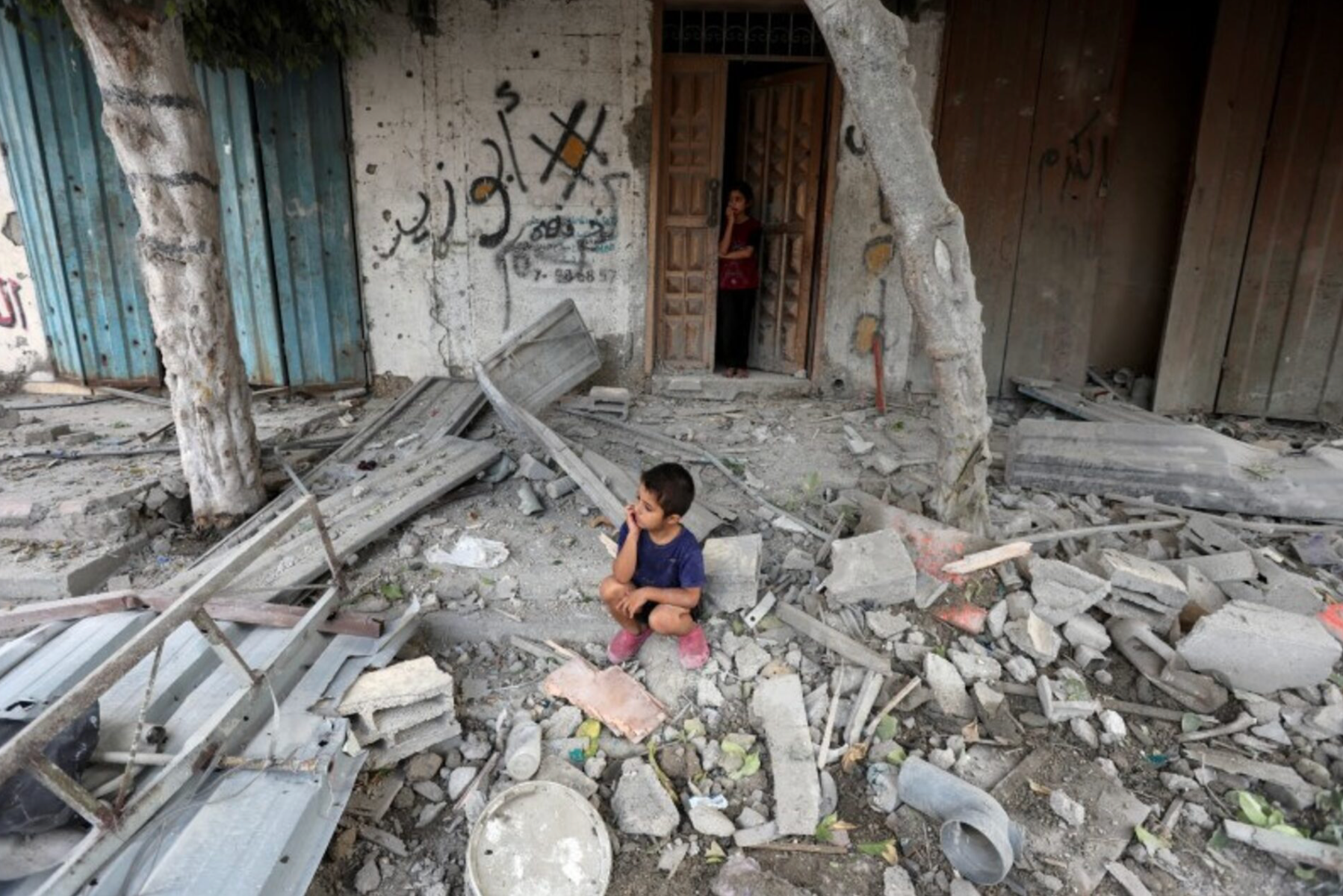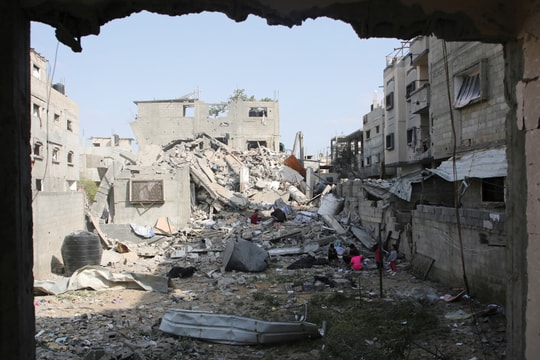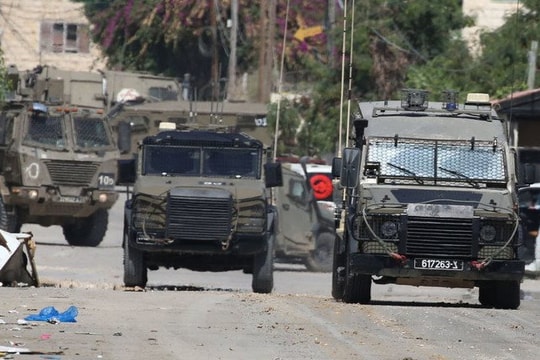Are US President Biden's hopes for a ceasefire in Gaza fading?
US President Joe Biden's hopes of brokering a ceasefire before leaving office are looking increasingly remote, even as the White House steps up pressure on Israel and Hamas to reach a deal in ceasefire talks scheduled to resume on August 15.

“It’s getting tougher. I’m not going to give up,” Biden said on August 14, when asked if a ceasefire was becoming a more remote possibility.
But military action is overtaking and undermining diplomatic efforts. Iran is expected to launch a retaliatory strike on Israel this week for the alleged assassination of a top Hamas political official in Tehran on July 31. Israel faced global condemnation after an attack on a school complex housing Palestinians on Saturday that killed dozens of people. Israel said it targeted Hamas militants.
Although Mr. Biden is deploying strong diplomatic efforts to ease tensions in the region, the situation in Gaza appears to be going in the wrong direction with only about five months left in his presidency, and both Israel and Hamas are said to have made new demands in recent weeks.
Hamas has so far refused to participate in talks on August 15, accusing Netanyahu of changing the criteria in the ceasefire terms, and expressed anger at Israel's military operation over the weekend.
US State Department spokesman Vedant Patel said on August 13 that Qatar had assured the US that “they would make efforts to have Hamas representatives present.”

Prime Minister Netanyahu, who has confirmed sending a delegation to the talks, dismissed Hamas claims that it had offered new terms, although The New York Times reviewed documents that appeared to support those claims.
The talks were also affected by Iran's threat to launch a retaliatory strike against Israel, and analysts predict Iran and its allies — particularly Hezbollah in Lebanon — will coordinate a large-scale attack from multiple fronts, including drones and missiles.
However, Iran is also signaling that it may hold off on retaliation in favor of ceasefire talks. Three unnamed Iranian sources told Reuters that only a ceasefire could prevent a military attack on Israel.
Mr. Biden, speaking to reporters on August 13, said he hoped that Iran would delay a retaliatory attack in favor of ceasefire talks: “We’ll see what Iran does. We’ll see what happens.”
Brian Carter, Middle East portfolio manager at the American Enterprise Institute (AEI), said any Iranian support for a ceasefire was likely intended to drive a wedge into Israeli society while Netanyahu was seen as sabotaging the negotiations. Iran is positioning itself as a responsible actor trying to avoid actions that could disrupt the negotiations or escalate into a wider war.

However, an Iranian attack on Israel is also seen as necessary to re-establish deterrence in the region. Iran launched hundreds of missiles and drones at Israel in April in retaliation for Israel's alleged killing of a senior Iranian commander in Syria.
“The open question here is whether Iran prioritizes reestablishing its deterrence, or whether it prioritizes the ability to claim victory in Gaza if Hamas can get Israel to accept a ceasefire,” Carter said.
Biden has prioritized achieving a ceasefire between Israel and Hamas in his final months in office, after achieving major success in repatriating three Americans and a green card holder held in Russian jails in a historic prisoner swap earlier this month.
According to The Hill, Vice President Harris will certainly maintain more continuity and inheritance than former President Trump when it comes to Mr. Biden's Middle East policy, but there may be some changes even if the Democrats remain in the White House.
Ms. Harris has signaled that she is willing to take a tougher stance in criticizing Israeli Prime Minister Benjamin Netanyahu for widespread Palestinian suffering, although her office says she opposes an arms embargo to contain Israel.
Mr Trump has advocated helping Israel end the war as quickly as possible, although it is unclear how he hopes to achieve that. Mr Netanyahu is said to prefer the Republican presidential candidate to Ms Harris.
Even as Mr. Biden puts all his diplomatic weight into bringing Israel and Hamas to the negotiating table, both Netanyahu and Yahya Sinwar, Hamas’s chief decision-maker holed up in tunnels in the Gaza Strip, appear to have more incentive to continue the war than to agree to a ceasefire.
Netanyahu is under intense pressure to free the remaining hostages held by Hamas since the October 7, 2023, terror attack, but he is determined to eliminate Hamas and maintain Israeli control of security in Gaza — terms that please his far-right coalition partners.
And Sinwar, the “architect” of the October 7 attack, likely sees continuing the war as a way to advance his goals of weakening Israel.
“Sinwar doesn’t feel pressured by Israel’s actions to commit to a ceasefire right now,” said AEI’s Carter. “I think he’s hopeful that his organization, if not necessarily him, will survive this war to some extent…”
Mr Biden, backed by Egypt and Qatar, has offered Israel and Hamas “a final bridge proposal” to bridge remaining gaps between the two sides on a framework put forward by Mr Biden in late May and endorsed by the UN Security Council.
We have called on both sides to resume urgent discussions on Thursday, August 15 in Doha or Cairo to close any remaining gaps and begin implementing the agreement without further delay.
A joint statement by Mr. Biden with the leaders of Egypt and Qatar was released last week.
The truce, according to sources, is aimed at saving the lives of dozens of hostages held by Hamas since their abduction from southern Israel on October 7 — including Americans — and bringing desperately needed relief to Palestinians in Gaza who are enduring a devastating humanitarian crisis after more than 10 months of war.
But the US president also sees the deal as key to unlocking broader peace in the Middle East, with the potential to cool the entire region, deter Iran and its allies from carrying out potentially escalating attacks, pave the way for Palestinian civil self-rule and facilitate relations between Israel and Saudi Arabia.
“Whether the Biden administration will be successful in this delicate balancing act—using diplomacy to achieve a cease-fire while also sending a message through words and actions that prevents a larger regional war and helps Israel defend itself—depends largely on the decisions and actions of the main actors in the region, namely Israel, Iran, Hamas, and Hezbollah,” Brian Katulis, a senior fellow for US foreign policy at the Middle East Institute, wrote in an Aug. 12 briefing.
“The coming days could be crucial and could determine whether the clashes of the past weeks explode into a larger conflict or give way to a diplomatic solution. Either way, the two conditions that have long plagued the wider region – the role of Iran and its regional partners and the absence of a just solution to the Israeli-Palestinian conflict – are likely to persist for some time,” Katulis predicted.





